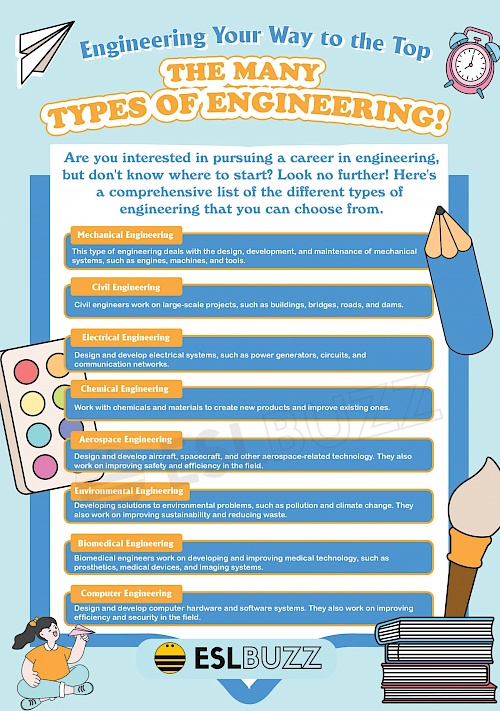Differences between EE and ECE Explained: From Circuits to Cybersecurity

Blog / July 15, 2024
Engineering is the art of implementing scientific and mathematical principles to solve real-world challenges. Dating back to the 19th century, the dawn of electrical engineering, ECE has revolutionized into a diverse field, driving innovation in multiple sectors, incorporating telecommunications, healthcare, energy, and automation. Additionally, in today’s intertwined world, where data flows in various networks and digital systems govern every aspect of individuals’ lives, the imperativeness of cybersecurity engineering cannot be ignored.
 Source: https://www.eslbuzz.com/
Source: https://www.eslbuzz.com/
Wait, have you ever considered the prospect of becoming the backbone of an organization to ensure that cyber threats are kept at bay? If so, then a career in ECE Engineering would be a game-changer for you.
The Market Size
On the global scale, the cyber security market was estimated at US$ 222.66 billion in 2023 and is predicted to see a massive surge at a compound annual growth rate (CAGR) of 12.3% between 2023 and 2030. Below is a detailed information, including growth rate, forecast, quantitative units, regional scope, etc. Read on.
Cyber Security Market Report Scope
|
Report Attribute |
Details |
|
Market size value in 2023 |
US$ 222.66 billion |
|
Revenue forecast in 2030 |
US$ 500.70 billion |
|
Growth rate |
CAGR of 12.3% from 2023 to 2030 |
|
Actual data |
2018 - 2023 |
|
Forecast period |
2024 - 2030 |
|
Quantitative units |
Revenue in US$ billion and CAGR from 2023 to 2030 |
|
Report coverage |
Revenue forecast, company share, competitive landscape, growth factors, and trends |
|
Segments covered |
Component, Security Type, Solution, Services, Deployment, Organization Size, Vertical, Region |
|
Regional scope |
North America, Europe, Asia Pacific, Latin America, MEA |
|
Country scope |
U.S.; Canada; UK; Germany; France; Italy; Spain; India; China; Japan; Australia; South Korea; Brazil; Mexico; Argentina; UAE; Saudi Arabia; South Africa |
|
Key companies profiled |
BAE Systems Plc; Broadcom, Inc.; Centrify Corp.; Check Point Software Technology Ltd.; Cisco Systems, Inc.; FireEye, Inc.; Fortinet, Inc.; IBM Corporation; Lockheed Martin Corp. |
Differences between EE and ECE
In the present era, many individuals still think that EE and ECE are the same field. Hence, to bring this misunderstanding to its end, mentioned underneath is a comparison between Electronics Engineering (EE) and Electrical and Computer Engineering (ECE Engineering) in a tabular form:
|
Aspect |
Electronics Engineering |
Electrical and Computer Engineering |
|
Focus |
Design and application of electronic circuits/devices |
Integration of electrical engineering and computer science |
|
Core Components |
Semiconductor devices, analog/digital circuits |
Hardware, software, computer architecture |
|
Key Areas of Expertise |
Circuit design, signal processing, power electronics |
Embedded systems, computer architecture, networking |
|
Emphasis |
Hardware-centric solutions |
Hardware-software integration, interdisciplinary focus |
|
Example Applications |
Amplifiers, oscillators, power supplies |
Embedded systems, computer processors, networking |
This tabulated comparison succinctly outlines the major differences between EE and ECE, highlighting their respective focuses, core components, areas of expertise, emphasis, and example applications.
Discover the Intersection of Electrical and Computer Engineering via a B. Tech. at Shiv Nadar University (Institution of Eminence)
Founded back in 2011 by billionaire philanthropist Shiv Nadar, Shiv Nadar University is an esteemed transdisciplinary institution nestled in the heart of Greater Noida, India. Well-known for its advanced and industry-centric curriculum as well as research-driven approach, the university offers vivid courses at all three levels housed under different schools.
Under the School of Engineering lies an undergraduate B. Tech. in Electrical and Computer Engineering course, which is meticulously crafted to entrust critical concepts from electrical and computer engineering domains. The program equips avid learners like you with the necessary skill sets and in-depth knowledge to tackle forthcoming technological challenges efficaciously. Emphasizing skill development, job readiness, as well as the utilization of modern hardware and software analysis tools, this undergraduate course ensures that students get well-structured and industry-ready.
Simply put, the B. Tech. in Electrical and Computer Engineering at Shiv Nadar University underpins the importance of computer engineering knowledge for electrical engineers.
Altogether, with state-of-the-art infrastructure and a vibrant campus culture, the university promotes academic excellence, critical thinking, and interdisciplinary collaboration. Its unmatchable dedication to nurturing future leaders stands as an illuminant of academic distinction and advancement in the Indian higher education landscape.
Explore the Fusion of Electrical and Computer Engineering
Believe it or not, B. Tech. Electrical and Computer Engineering stand as a testament to human ingenuity and advancement, driving progress in the digital era. By extracting advantages of principles from electrical engineering and computer science, ECE explorers continue to transcend the boundaries of what is possible, molding the technological domains for generations to come. As society steers the intricacies of the 21st century, the transdisciplinary nature of ECE will remain irreplaceable in handling global challenges and promoting a more connected, sustainable, and technologically advanced world.